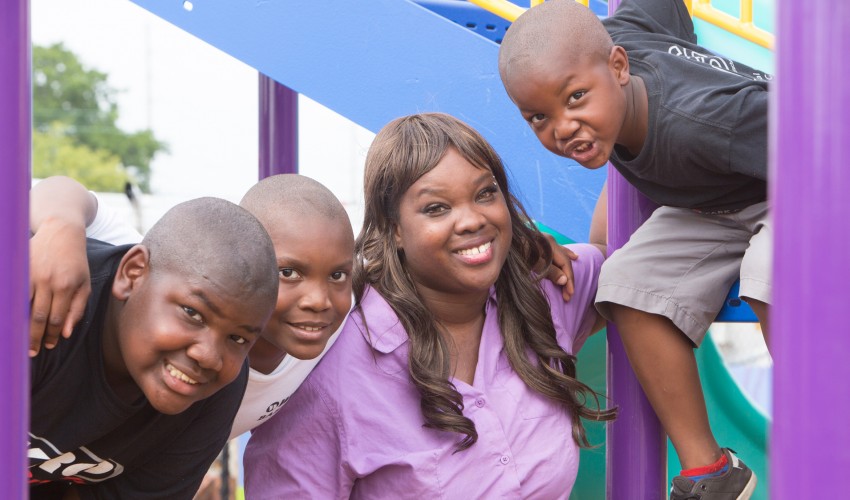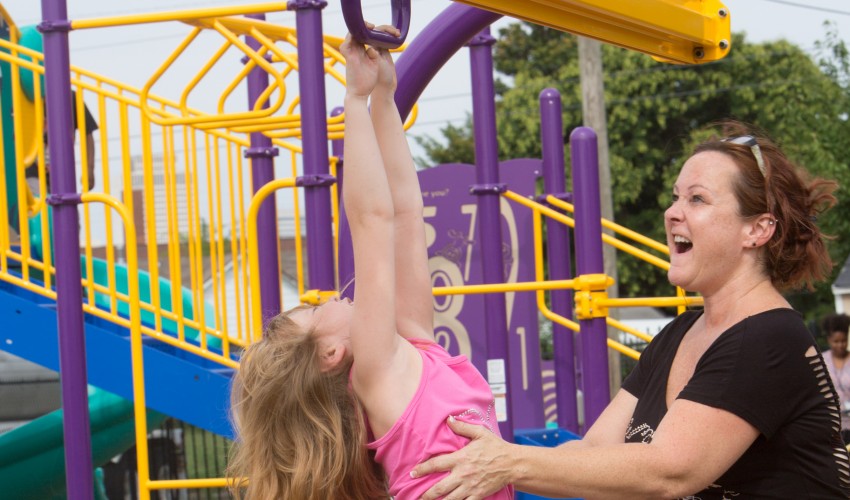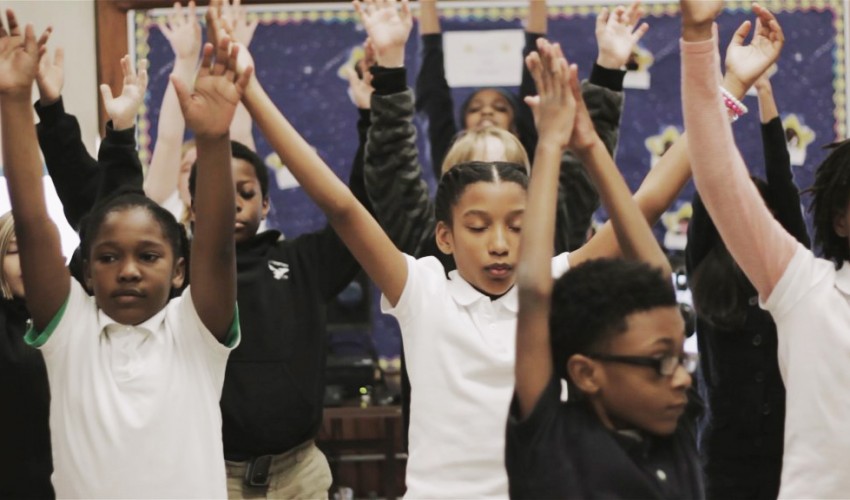Adults don’t always remember that it’s tough to be a kid sometimes.
The grown-up world takes a lot of attention and effort, with its work, bills, responsibilities and concerns.
That makes it easy to recall childhood as a carefree time, simply because it has none of those obligations.
But in reality, kids get stressed out too, with pressures of their own from school, family and friends — and lately they are losing one of their main sources of relief.
“Across society, a number of things are making play disappear from the lives of kids,” says Amy Levner, vice president of communications and marketing for KaBoom!, a nonprofit organization that builds playgrounds in underserved communities and promotes playtime for all kids.
“There is some overstructuring of activities due to changes in education and a focus on testing. There is an absence of play spaces in many neighborhoods. And of course, screen time is also a factor.”
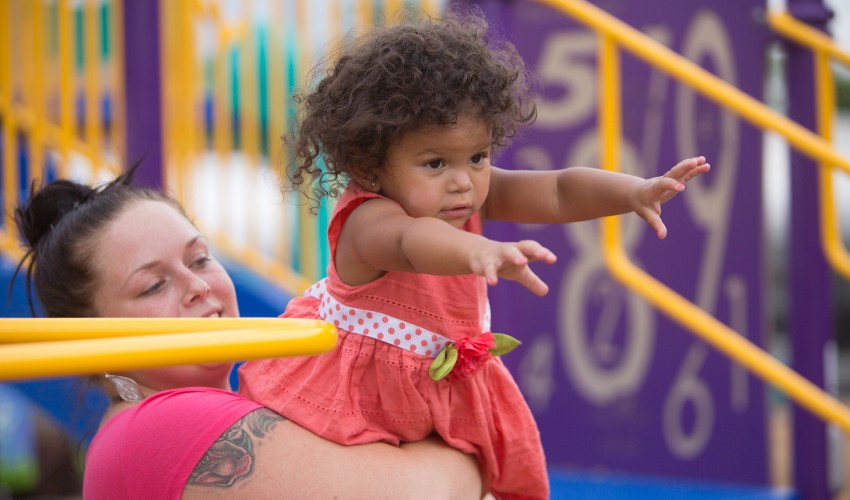
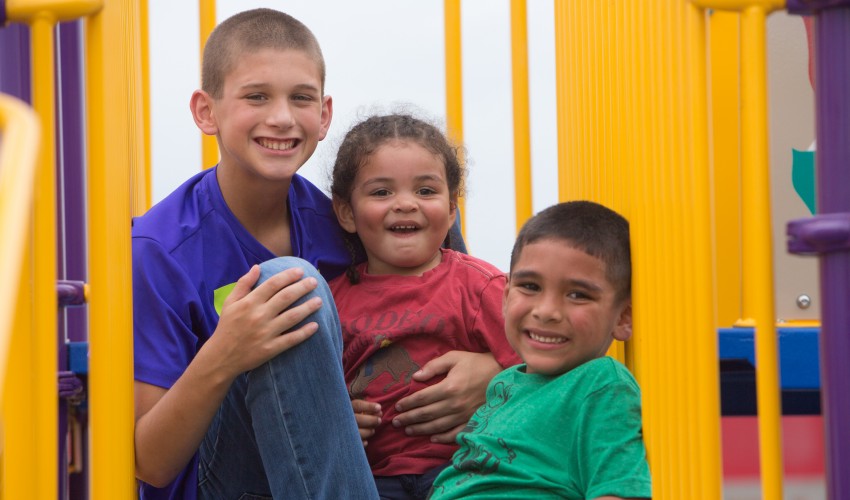
That lack of playtime has consequences.
Tag, hide-and-seek, jump rope, climbing a rock wall, swinging and sliding all get children moving, and that activity has a positive impact on their health.
“It could be argued that active play is so central to child development that it should be included in the very definition of childhood.” –American Academy of Pediatrics
Softball, basketball, kickball, soccer and other sports teach teamwork, and all the made-up stories and games that kids come up with on their own spur imagination.
Parents who make the time to play with their children strengthen the family bond and get to know their children better.
A break from stress
KaBoom! gives special attention to poverty-stricken areas, partly because these neighborhoods have fewer parks and playgrounds, but also because the kids face more intense challenges to their overall well-being.
When a person is under stress, their body releases adrenaline, cortisol and other hormones. Under ordinary circumstances, this response is helpful, putting the body on alert to deal with whatever is at hand until the fear/danger passes. But in extreme cases, the danger doesn’t let up.
A child in an environment that is unsafe, such as a home with physical or emotional abuse or a neighborhood beset by violence, often has a hard time being comforted by the adults around them since they’re also dealing with those emotionally draining surroundings.
It sounds hopeless, but small changes in the area do have an impact.
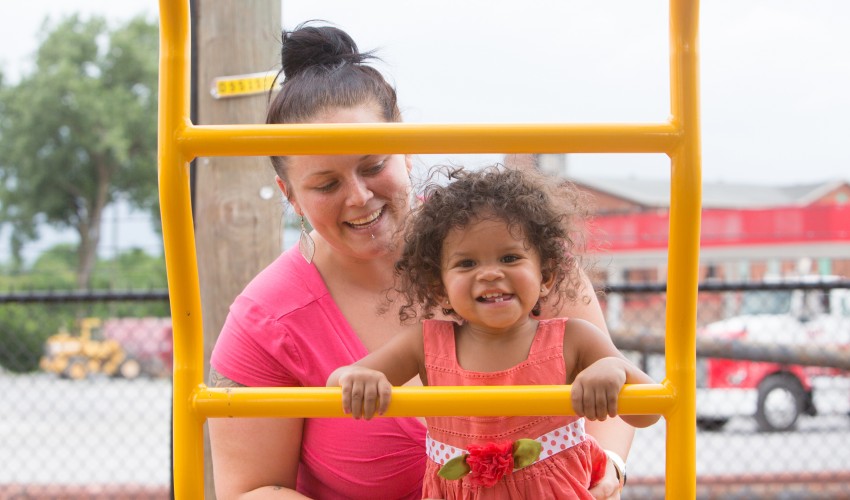
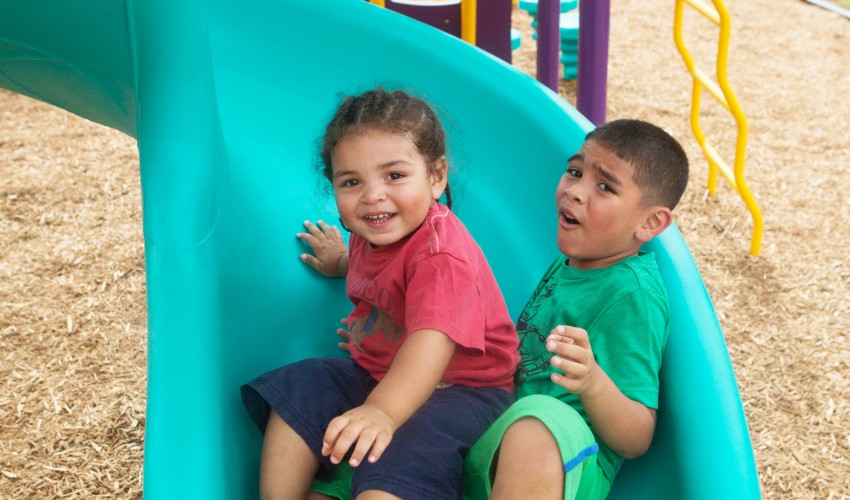
“We need to create opportunities for play,” says Thompson. “How do you find those moments of joy in a child’s day — even if it’s just a few minutes of hopscotch on the sidewalk?”
Children living in difficult circumstances without an opportunity to break away from the situation may suffer from toxic stress , which has a long-lasting impact on their mental and physical health.
The American Academy of Pediatrics has noted that playtime between a child and parent or other caring adult helps to diffuse that toxic stress.
KaBoom! works with communities to design and install playgrounds that offer that opportunity.
Parents and local leaders get together to discuss the type of equipment they would like to see installed, but the kids get a voice in creating their play space too.
By the end of the process, the neighborhood has a central gathering place that encourages positive interactions, the kids have a safe place to play and the parents end up having a respite from the day’s worries and may even get in a bit of activity themselves.
“The playground is such a lovely metaphor for life,” says Levner.
“It involves interaction, collaboration and problem solving — all critical 21st century skills.”
